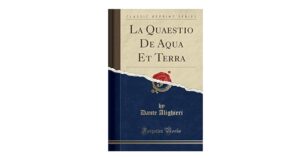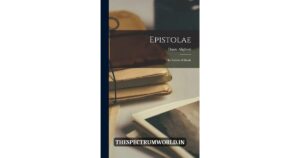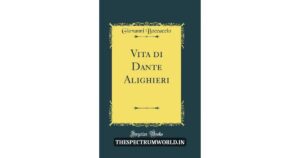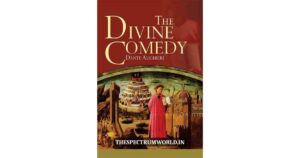Dante and His Famous Work The Divine Comedy
Dante Alighieri (1265-1321) was an Italian poet, writer, and philosopher who made significant contributions to literary criticism. His works, particularly “The Divine Comedy,” had a profound impact on the development of literary theory and criticism.
Table of Contents

Dante’s key contributions:
- Establishing the importance of vernacular language: He argued that vernacular languages, like Italian, were suitable for literary expression, challenging the dominance of Latin.
- Autobiographical writing: His use of autobiographical elements in his poetry paved the way for future writers to explore personal experiences in their work.
- Allegory and symbolism: His masterful use of allegory and symbolism in “The Divine Comedy” raised the bar for literary devices and encouraged future writers to experiment with complex meanings.
- Literary theory and criticism: His writings on literary theory, such as his essay “The Banquet,” demonstrated a critical approach to literature, influencing later literary critics.
- Influence on Renaissance humanism: His emphasis on classical learning and humanist ideals helped shape the Renaissance humanist movement.
- Development of the “comedy” genre: His “The Divine Comedy” redefined the concept of comedy, expanding it beyond humorous works to include philosophical and spiritual themes.
- Inspiration to future writers: His works have inspired countless writers, including Petrarch, Boccaccio, Chaucer, and many others, shaping the course of literary history.
His contributions to literary criticism have had a lasting impact, influencing writers, scholars, and literary theorists for centuries. His innovative use of language, literary devices, and autobiographical elements raised the bar for literary expression and continues to inspire new generations of writers and critics.

Important works of Dante Alighieri:
- The Divine Comedy (La Divina Commedia):
- Inferno (Hell)
- Purgatorio (Purgatory)
- Paradiso (Paradise)
- The New Life (La Vita Nuova): A collection of poems and prose exploring his love for Beatrice.
- The Banquet (Il Convivio): An unfinished work of literary theory and criticism.
- The Monarchy (De Monarchia): A treatise on political philosophy.
- Eclogues (Egloghe): Two pastoral poems.
- Letters (Epistole): Collection of letters to friends, patrons, and fellow writers.
- Quaestio de Aqua et Terra: A scientific treatise on the nature of water and earth.
- Rime: A collection of poems, including sonnets and canzoni.
- Vita di Dante (Life of Dante): An autobiographical sketch.
- Il Fiore (The Flower): A poem, possibly written by Dante, but authorship is disputed.
These works showcase Dante’s mastery of various genres, from poetry to prose, and his exploration of themes such as love, philosophy, politics, and spirituality.
Dante Alighieri’s observations on poetry and basic rules to write poetry are scattered throughout his works, particularly in “The Banquet” and “The New Life”.

Dante’s Observations on Poetry:
- Poetry as a divine art: Dante believed poetry was a divine art, inspired by God.
- Imitation of nature: Poetry should imitate nature, reflecting the beauty and order of the universe.
- Expression of emotions: Poetry should express genuine emotions and feelings.
Basic Rules to Write Poetry:
- Use vernacular language: Write in the language of the people, not just Latin.
- Follow natural speech rhythms: Poetry should have a natural, speech-like rhythm.
- Use metaphor and allegory: Employ metaphor and allegory to convey deeper meanings.
- Balance content and form: Balance the content (meaning) with the form (structure, rhythm, etc.).
- Edit and revise: Carefully edit and revise your work to ensure clarity and beauty.
- Draw from classical sources: Study and draw inspiration from classical Greek and Roman poetry.
- Explore universal themes: Write about universal themes, such as love, morality, and the human condition.
- Use rhyme and meter: Employ rhyme and meter to create musicality and structure.
These observations and rules demonstrate Dante’s emphasis on the importance of natural language, emotional expression, and careful craftsmanship in poetry. His ideas had a significant impact on the development of poetry and literary theory.
Dante Alighieri’s rules for language, as outlined in his works, particularly “The Banquet” and “De Vulgari Eloquentia”.

Dante’s Observations on the Use of Language:
- Purity: Language should be pure, avoiding contamination from other languages.
- Clarity: Language should be clear and easily understood.
- Elegance: Language should be elegant and refined.
- Correctness: Language should follow established rules and conventions.
- Naturalness: Language should reflect natural speech and avoid artificiality.
- Vernacular: Write in the vernacular language, not just Latin.
- Simplicity: Avoid unnecessary complexity and ornamentation.
- Figurative language: Use figurative language, such as metaphor and allegory, to convey deeper meanings.
- Musicality: Language should have a musical quality, with attention to rhythm and sound.
- Regional authenticity: Language should reflect the regional dialect and culture.
- Avoidance of obscurity: Avoid using language that is overly obscure or difficult to understand.
- Precision: Use language precisely, avoiding ambiguity and confusion.
These rules demonstrate Dante’s emphasis on the importance of clear, elegant, and natural language in writing. His ideas had a significant impact on the development of the Italian language and literary style.
Read and learn more: Longinus and His Famous On The Sublime







One thought on “Dante and His Famous Work The Divine Comedy”